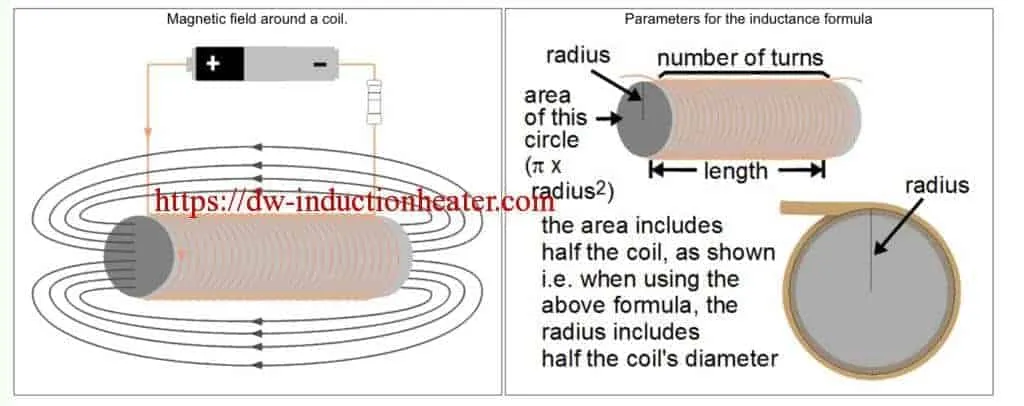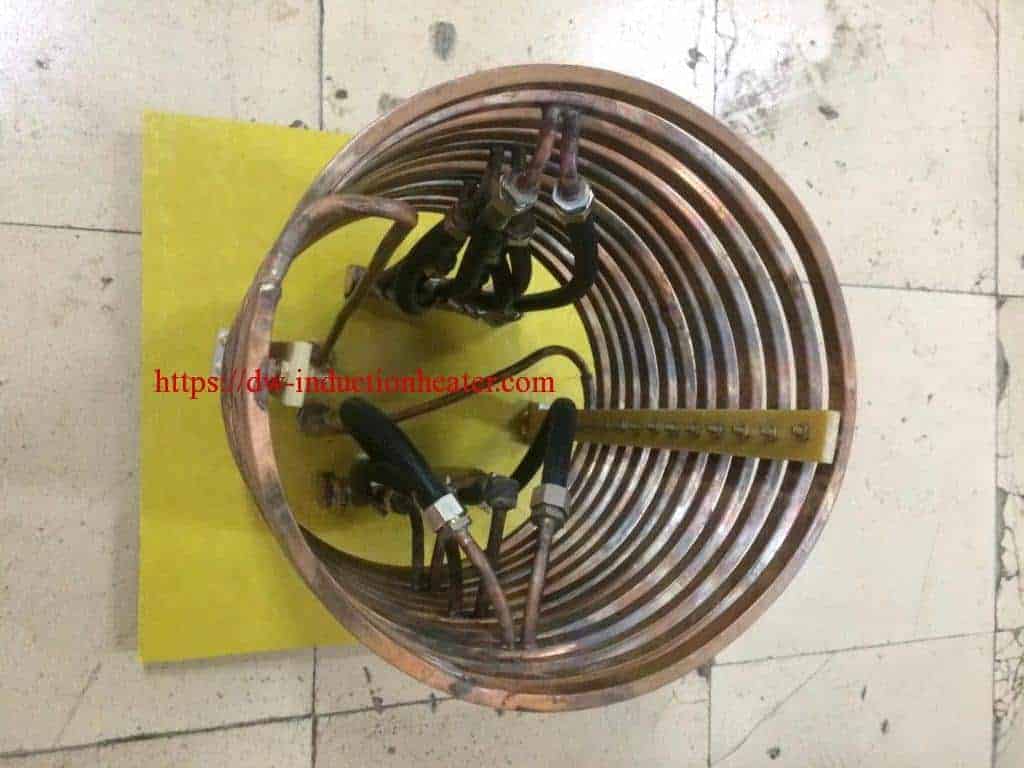How to design induction heating coil
 It is within the induction heating coil/inductor that the varying magnetic field required for induction heating is developed, through the flow of alternating current.
It is within the induction heating coil/inductor that the varying magnetic field required for induction heating is developed, through the flow of alternating current.
Induction heating coil/Inductor design is therefore one of the most important aspects of the overall induction heating machine. A well-designed inductor provides the proper heating pattern for your part and maximizes the efficiency of the induction heating power supply, while still allowing easy insertion and removal of the part.
The induction coil/inductor does not have to be shaped in a helix. With the right design, it is possible to heat conductive materials of any size and form, and also possible to heat only the portion of material required. It is even possible to heat different zones of the part at the same or different temperatures by means of a proper design of the inductor geometry. Temperature uniformity within your part is achieved through correct inductor design. The most effective uniformity can be achieved in round parts. Due to the nature of electrical current path flow, parts with sharp edges could preferentially heat in those areas if the proper inductor design is not used.
Coupling Efficiency
There is a proportional relationship between the amount of current flow and distance between the inductor and part. Placing the part close to the inductor increases the flow of current and the amount of heat induced in the part. This relationship is referred to as the coupling efficiency of the inductor.
Basic Construction
Induction heating coil/Inductors are often made of copper tubing – a very good conductor of heat and electricity – with a diameter of 1/8″ to 3/16″; larger copper coil assemblies are made for applications such as strip metal heating and pipe heating. Inductors are usually cooled by circulating water, and are most often custom-made to fit the shape and size of the part to be heated. So inductors can have single or multiple turns; have a helical, round or square shape; or be designed as internal (part inside inductor) or external (part adjacent to inductor).
How Induction Heating Coils Work
How efficiently and effectively a workpiece is heated is determined by the induction coil. Induction coils are water-cooled copper conductors created from copper tubing which is readily formed into the shape of the coil for the induction heating process. As water flows through them, induction heating coils themselves do not get hot.
Work coils range in complexity from a coil that is precision machined from solid copper and brazed, to a simple solenoid- or helical-wound coil (made up of a number of turns of copper tube wound around a mandrel).
By producing an alternating electromagnetic field due to the alternating current flowing in them, coils transfer energy from the power supply to the workpiece. The coil’s alternating electromagnetic field (EMF) creates an induced current (eddy current) in the workpiece, which generates heats due to I Squared R losses (core losses).
The coil’s EMF strength correlates with the current in the workpiece. This transfer of energy is known as the eddy current effect or transformer effect.

